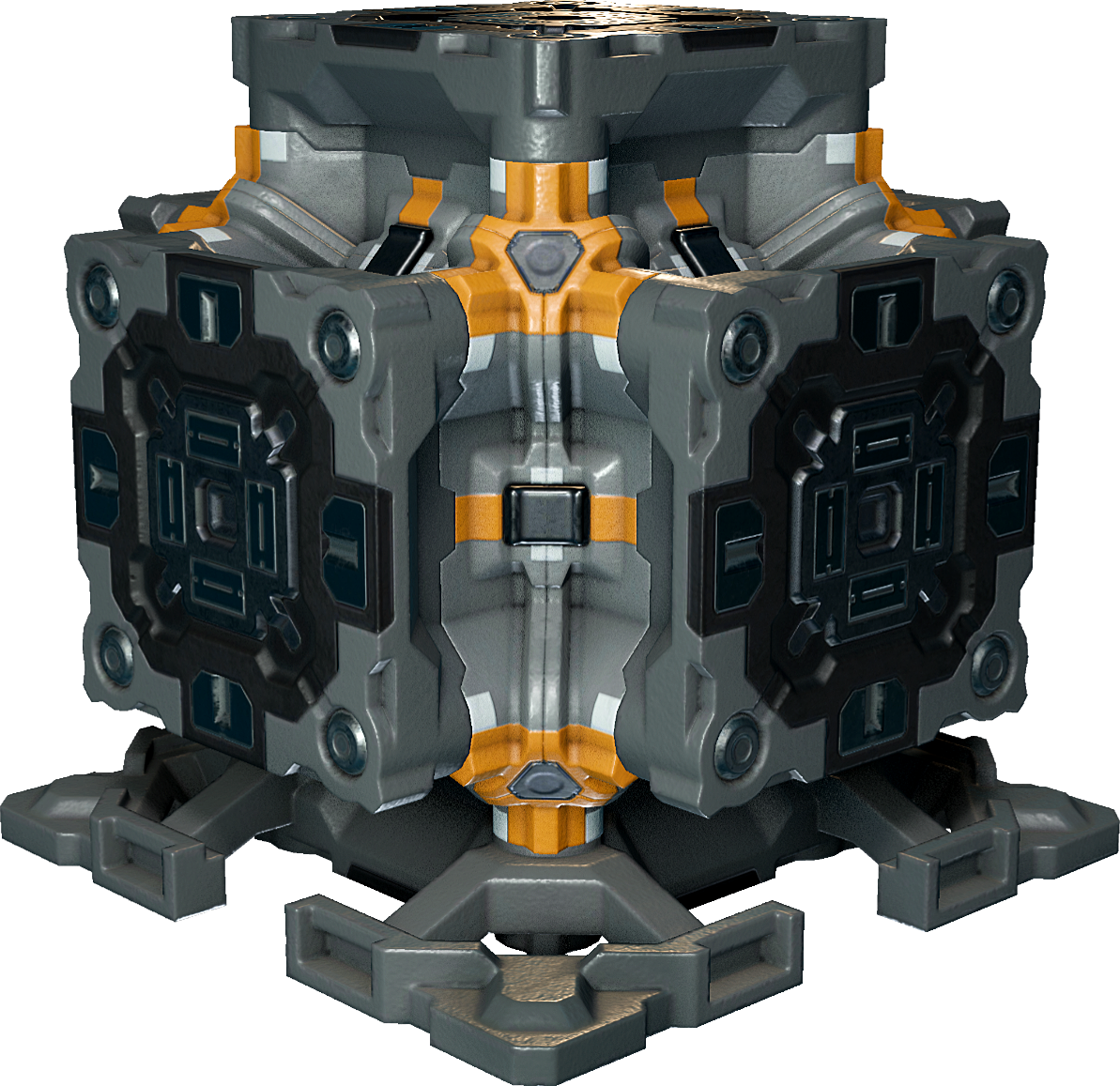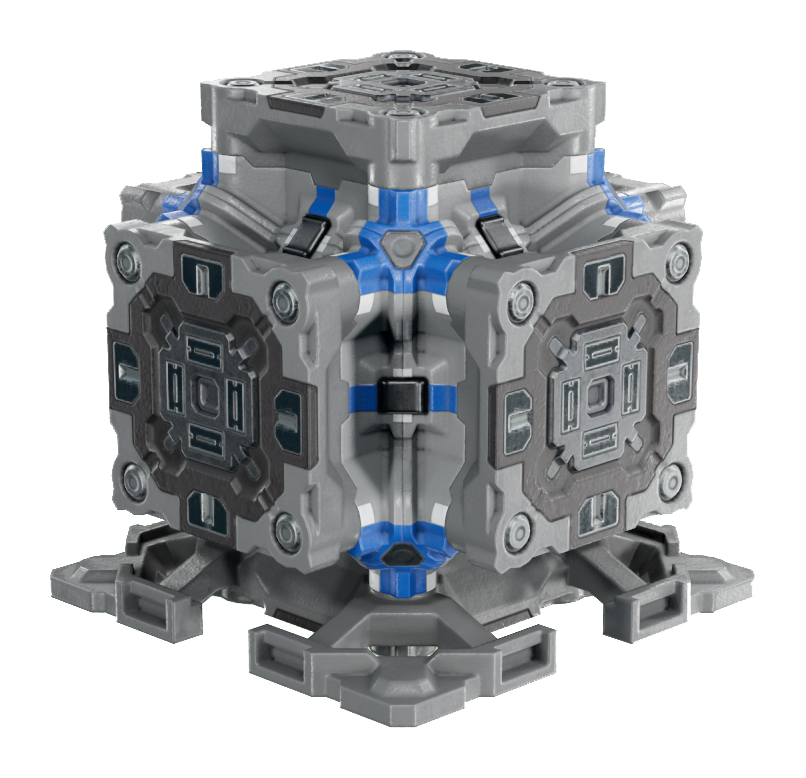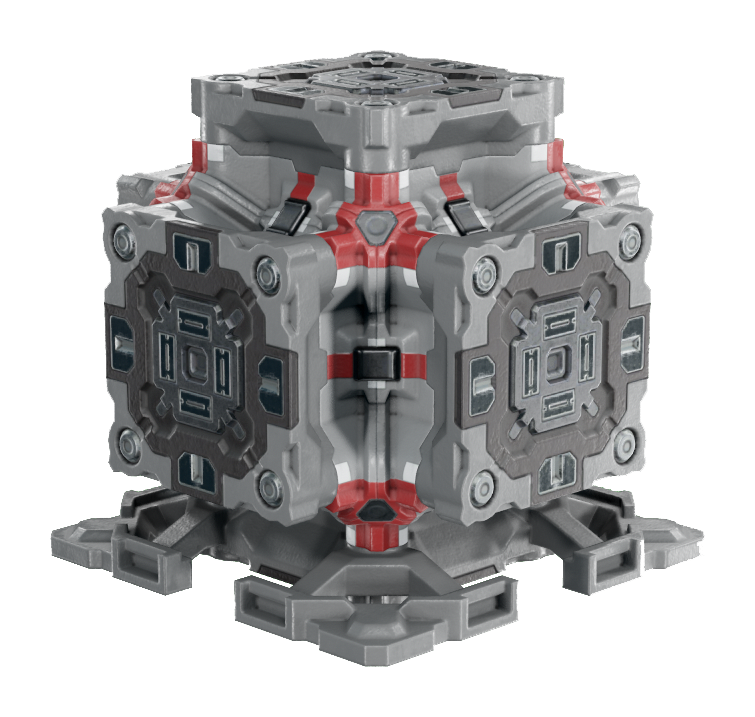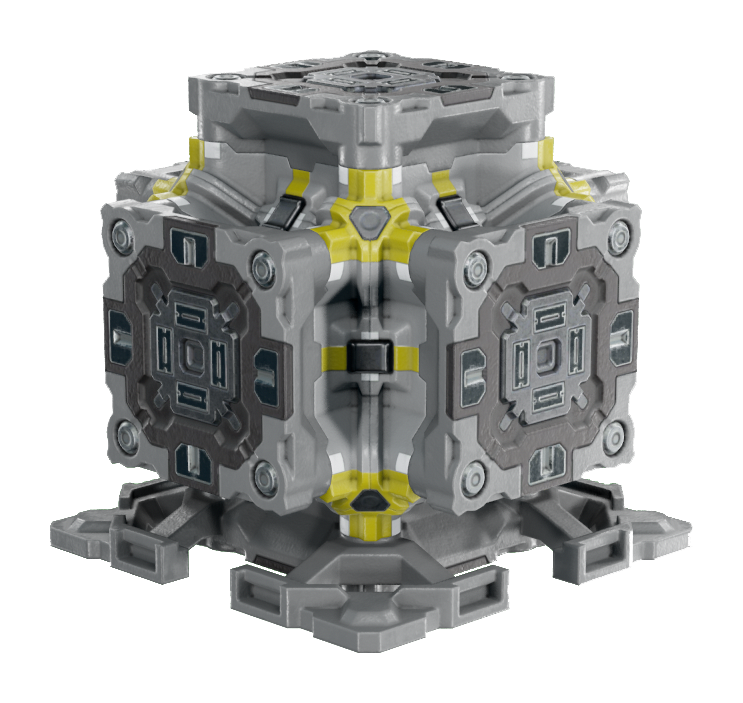Difference between revisions of "Generator unit"
Jump to navigation
Jump to search
m (→Basic Usage) |
|||
| (4 intermediate revisions by 2 users not shown) | |||
| Line 30: | Line 30: | ||
* Receives '''Processed Fuel''' from the fuel chamber and converts it to '''Power'''. | * Receives '''Processed Fuel''' from the [[Fuel chamber|fuel chamber]] and converts it to '''Power'''. | ||
** This process also generates '''Heat'''. | ** This process also generates '''Heat'''. | ||
** '''NOTE!''' The generators will constantly consume '''Processed fuel''', wasting excess '''Power''' unless their ''ConversionRateLimit'' is modified via [[YOLOL|YOLOL]]. | ** '''NOTE!''' The generators will constantly consume '''Processed fuel''', wasting excess '''Power''' unless their ''ConversionRateLimit'' is modified via [[YOLOL|YOLOL]]. | ||
| Line 38: | Line 38: | ||
* Generators produce heat proportional to their unit rate. | * Generators produce heat proportional to their unit rate. | ||
* For every adjacent generator unit, extra heat will be generated. | * For every adjacent generator unit or fuel chamber, extra heat will be generated. | ||
** See [[heat mechanics]] for more info. | ** See [[heat mechanics]] for more info. | ||
| Line 65: | Line 65: | ||
|{{SB Infobox Device IO | |{{SB Infobox Device IO | ||
|electricOut=1,000 e/s | |electricOut=1,000 e/s | ||
|heatGeneration= | |heatGeneration=80 per second | ||
|fuelIn=25 per second ''(processed)'' | |fuelIn=25 per second ''(processed)'' | ||
|modInterfaces=6 | |modInterfaces=6 | ||
| Line 123: | Line 123: | ||
|{{SB Infobox Device IO | |{{SB Infobox Device IO | ||
|electricOut=1,250 e/s | |electricOut=1,250 e/s | ||
|heatGeneration= | |heatGeneration=100 per second | ||
|fuelIn=25 per second ''(processed)'' | |fuelIn=25 per second ''(processed)'' | ||
|modInterfaces=6 | |modInterfaces=6 | ||
| Line 144: | Line 144: | ||
! Description | ! Description | ||
! Range | ! Range | ||
|- | |||
! '''ElectricityProduction''' | |||
|Amount of electricity the generator unit is currently producing per second | |||
| 0 - | |||
|- | |||
! '''HeatProduction''' | |||
|Amount of heat the generator unit is currently producing per second | |||
| 0 - | |||
|- | |- | ||
! '''GeneratorUnitRateLimit''' | ! '''GeneratorUnitRateLimit''' | ||
| Upper limit for conversion rate for this generator | | Upper limit for conversion rate for this generator unit | ||
| 0 - 100 | | 0 - 100 | ||
|- | |- | ||
! '''GeneratorUnitRate''' | ! '''GeneratorUnitRate''' | ||
| Current conversion rate for this generator | | Current conversion rate for this generator unit, expressed as a percentage. | ||
| 0 - 100 | | 0 - 100 | ||
|- | |||
! '''GeneratorUnitStoredHeat''' | |||
|Amount of heat currently stored in the generator unit | |||
| 0 - 1500 | |||
|- | |||
! '''GeneratorUnitMaxStoredHeat''' | |||
|Maximum amount of heat that can be stored in the generator unit | |||
| 1500 | |||
|- | |- | ||
|}<section end=deviceFields/> | |}<section end=deviceFields/> | ||
Latest revision as of 19:46, 8 September 2024
This page contains information for individual generator unit parts, for information on multi-part assembled generators see: Generator (Assembly).
Generators are one of the most important parts of a spaceship, as they convert fuel into electrical energy in an efficient process. They are extremely modular, and can be configured into complexes of many different shapes and sizes - however, for each adjacent generator, the heat output is also increased.
Basic Usage
- NOTE! tier 1 generator parts are not compatible with Tier 2 or 3.
- Tier 2 and tier 3 parts are compatible.
- Receives Processed Fuel from the fuel chamber and converts it to Power.
- This process also generates Heat.
- NOTE! The generators will constantly consume Processed fuel, wasting excess Power unless their ConversionRateLimit is modified via YOLOL.
- There are six connectors, one on each side.
- Other modules can be attached to the connectors.
- Generators produce heat proportional to their unit rate.
- For every adjacent generator unit or fuel chamber, extra heat will be generated.
- See heat mechanics for more info.
- T1 and T2 units produce 1000 units of electricity per second, if enough fuel is available, T3 units can produce 1250 units of electricity per second.
- One fuel rod can support three generator units, or 3000 (3750 for T3) units of electricity per second, without enhancement.
- An enhanced generator unit will generate more power. See enhancers for more info.
Types
Tier 1 generator
Size 96×96×96 cm
Mass 4,625.7 kg
Volume 464.89 kv
Corrosion resistance 385
Primary material Bastium
Input / Output
Electric output 1,000 e/s
Heat generation 80 per second
Fuel input 25 per second (processed)
Modular interfaces 6
Composition
Tier 2 generator
Size 96×96×96 cm
Mass 4,495.5 kg
Volume 464.89 kv
Corrosion resistance 395
Primary material Aegisium
Input / Output
Electric output 1,000 e/s
Heat generation 90 per second
Fuel input 25 per second (processed)
Modular interfaces 6
Composition
Tier 3 generator
Size 96×96×96 cm
Mass 4,081.7 kg
Volume 464.89 kv
Corrosion resistance 535
Primary material Ymrium
Input / Output
Electric output 1,250 e/s
Heat generation 100 per second
Fuel input 25 per second (processed)
Modular interfaces 6
Composition
Device fields
| YOLOL field | Description | Range |
|---|---|---|
| ElectricityProduction | Amount of electricity the generator unit is currently producing per second | 0 - |
| HeatProduction | Amount of heat the generator unit is currently producing per second | 0 - |
| GeneratorUnitRateLimit | Upper limit for conversion rate for this generator unit | 0 - 100 |
| GeneratorUnitRate | Current conversion rate for this generator unit, expressed as a percentage. | 0 - 100 |
| GeneratorUnitStoredHeat | Amount of heat currently stored in the generator unit | 0 - 1500 |
| GeneratorUnitMaxStoredHeat | Maximum amount of heat that can be stored in the generator unit | 1500 |
To learn more about how to use fields, consult these wiki pages:



